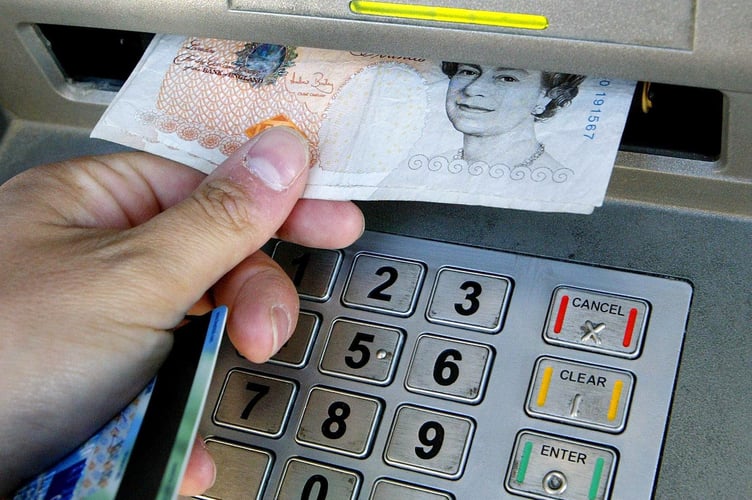East Hampshire has fewer ATMs than it did three years ago, new analysis shows.
This mirrors a significant drop in cash machine numbers across the UK.
New analysis of LINK data – a network of cash machines – shows there were 64 ATMs open in East Hampshire as of June.
This was a decrease from 74 in June 2021, the earliest available local figures.
In East Hampshire, 60 machines are free to use, while four charge a fee.
The UK has lost one in 10 of its ATMs between June 2021 and June 2024, falling from 54,000 to 48,500.
Caroline Abrahams, charity director at Age UK, said free access to cash is "absolutely vital" for older people, given many of them do not manage their money online.
"The decline in ATMs is concerning, although the new regulations recently introduced by the Financial Conduct Authority should protect access for the vast majority of people."
FCA rules introduced in September require banks to give more consideration to local communities before they close a branch, and firms must check whether more services are needed before an ATM is switched off.
"We hope that the Government will continue to monitor the situation and will be able to act if necessary," Ms Abrahams added.
Regional analysis shows London and the South West have been worst impacted, losing one in seven machines. In the South East, 12% have closed.
In addition, 12 local authority areas lost at least a quarter of their ATMs over this period. The East Midlands county of Rutland has fared the worst of any area in the country, losing half of the 18 cash machines it had in June 2021.
As a silver lining for consumers, ATMs which charge a fee are disappearing much faster than those that do not. More than one in five surcharging ATMs closed between 2021 and 2024, compared to 6% of free machines.
Nick Quin, head of financial inclusion at LINK, said: "As more people are choosing to pay for things digitally or with contactless payments, it does mean that we are using less cash and as a consequence, we have fewer cash machines."
He added the company is working to ensure people can still access cash where and when they need it.
Mr Quin credits their financial inclusion programme for ensuring 93% of people live within a mile of free access to cash.




